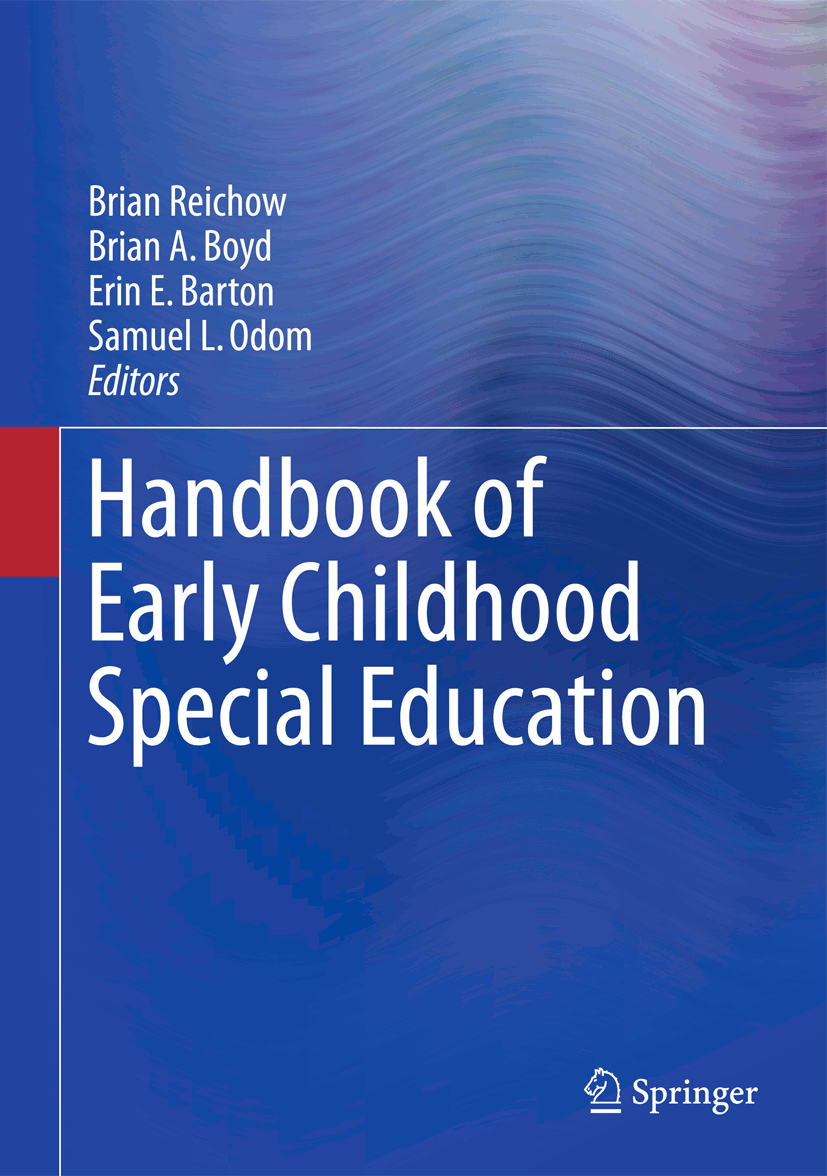Chapters include: The Role of Theory in Early Childhood Special Education and Early Intervention; Taking Stock and Moving Forward: Implementing Quality Early Childhood Inclusive Practices; Implementing Evidence-Based Practices in Early Childhood Classroom Settings, and more.
About: This handbook discusses early childhood special education (ECSE), with particular focus on evidence-based practices. Coverage spans core intervention areas in ECSE, such as literacy, motor skills, and social development as well as diverse contexts for services, including speech-language pathology, physical therapy, and pediatrics. Contributors offer strategies for planning, implementing, modifying, and adapting interventions to help young learners extend their benefits into the higher grades. Concluding chapters emphasize the importance of research in driving evidence-based practices (EBP).
Topics featured in the handbook include:
- Family-centered practices in early childhood intervention.
- The application of Response to Intervention (RtI) in young children with identified disabilities.
- Motor skills acquisition for young children with disabilities.
- Implementing evidence-based practices in ECSE classrooms.
- Cultural, ethnic, and linguistic implications for ECSE.
The Handbook of Early Childhood Special Education is a must-have resource for researchers, professors, upper-level undergraduate and graduate students, clinicians, and practitioners across such disciplines as child and school psychology, early childhood education, clinical social work, speech and physical therapy, developmental psychology, behavior therapy, and public health.

